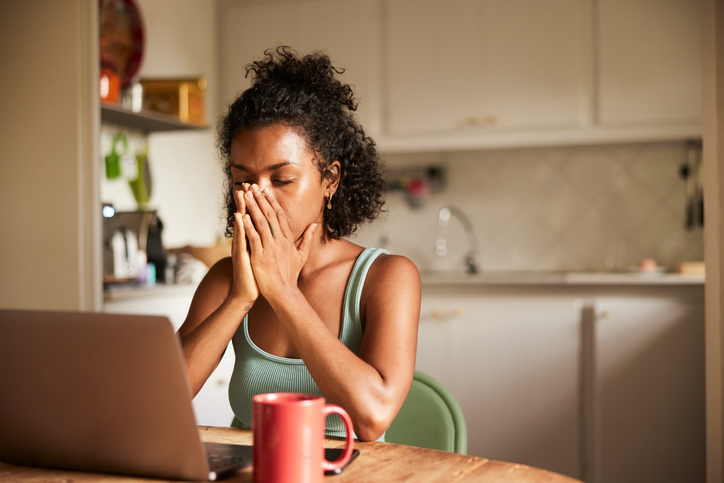Black People And Seasonal Depression: How To Combat Seasonal Affective Disorder
Source: Tempura / Getty
The summer is over and as the seasons change from fall to winter, so can our moods.
Shorter days mean less time to enjoy the sunlight and lower temperatures can keep us cooped up in the house for longer periods.
These shifts in the seasons can have drastic effects on a person’s mental health.
According to BU Today, an estimated 10 million Americans suffer from what is known as ‘seasonal affective disorder,’ with women four times more likely to be diagnosed than men.
SAD, also known as seasonal depression, or the winter blues, is a specific type of depression that occurs during the change of a season, typically from fall to winter. (It’s worth noting that although rare, some people suffer from SAD during the summer months.
Some mental health experts believe SAD can be caused by a lack of sunlight during the winter months.
According to Healthline, exposure to sunlight is thought to increase the brain’s release of a hormone called serotonin, which is associated with boosting mood and helping a person feel calm and focused. But at night, less light or no light at all triggers the brain to release melatonin, which is responsible for helping you sleep.
At the start of the winter months, as your body is adjusting to less sunlight and colder temperatures, your serotonin levels can dip, which could lead to seasonal depression.
Symptoms of SAD include but are not limited to, fatigue, irritability, low energy, problems concentrating, increased need for sleep, increased appetite, weight gain, as well as an increased need to be alone.
It is important for Black people, young and old, to understand different types of depression and how they affect the mind, especially SAD.
“African-Americans have a higher rate of Vitamin D deficiency, so the lack of sunshine on our melanin skin can literally impact our mood,” psychotherapist Farah Harris told Izzy & Liv. “However, due to the increase of mental health stigma in the Black community and the unhealthy mantra, that Black women need to be strong and magical, many Black women can be impacted by SAD and resign to keep their experience to themselves.”
A 2018 study from Science Daily found that Black and Latino Americans are significantly more likely to experience serious depression than white Americans.
When trying to battle against seasonal depression it is important to first acknowledge how you are feeling. Do not suffer in silence. Express your emotions to friends, family, or even a therapist. It’s also recommended to increase your Vitamin D intake. Vitamin D can mimic sunlight and help with your mood. Also always stay active and find hobbies that keep the blood flowing and anytime you have time to take advantage of the sunlight, make it a priority.
SEE ALSO:
How Raising Chickens Helped With This Black Man’s Mental Health
The post Black People And Seasonal Depression: How To Combat Seasonal Affective Disorder appeared first on NewsOne.

